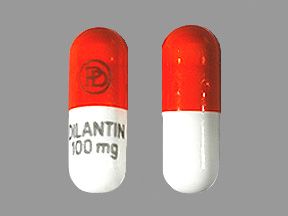Top Class Actions’s website and social media posts use affiliate links. If you make a purchase using such links, we may receive a commission, but it will not result in any additional charges to you. Please review our Affiliate Link Disclosure for more information.

However, the medication may trigger a serious and often fatal disease known as Dilantin Stevens Johnson Syndrome.
Dilantin is manufactured by Pfizer, while phenytoin is available generically from many different drug manufacturers. The medication is commonly used following brain surgery in a preventative measure against seizures.
It is also prescribed as a muscle relaxant by many doctors even though it is not approved for such uses. Dilantin has been proposed for several other therapeutic uses, but its use has been limited by its many adverse effects and interactions with other drugs.
Dilantin Stevens Johnson Syndrome
Dilantin has been connected to Stevens Johnson Syndrome (SJS) and Toxic Epidermal Necrolysis (TEN), two skin diseases that can lead to death.
Dilantin Stevens Johnson Syndrome is a dermatological disorder (disorder of the skin) due to an infection (herpes simplex and mycoplasma), allergy or hypersensitivity to medication, like Dilantin.
Calling it a “skin disorder” does not do it justice. Dilantin Stevens Johnson Syndrome is a life-threatening drug-induced cutaneous reaction that can kill or severely disable previously healthy people.
The pathology is still unknown, but it is possible that Dilantin Stevens Johnson Syndrome involves damage to the skin’s blood vessels followed by skin tissue damage. Both SJS and TEN begin with rashes on the body and fever and are often confused with a severe cold or flu prior to diagnosis.
Initial symptoms of Dilantin Stevens Johnson Syndrome include:
- Fatigue
- Fever
- Lesions
- Rashes
- Sore Throat
- Ulcers
Catching SJS in these early stages reduces the risk of death. However, SJS is considered an emergency condition, and treatment must be immediate. Those who are able to recover from SJS may be left with continuing medical complications such as organ damage, cornea damage and blindness.
Stevens Johnson Syndrome and its more severe variant Toxic Epidermal Necrolysis (TEN) have mortality rates between 5-35%, with TEN having the highest.
Medical professionals often regard SJS as a milder variation of TEN. While the symptoms are mostly the same, the results of TEN are more serious. In those who suffer from TEN, the top layer of their skin, the epidermis, detaches from the lower layers.
SJS occurs in about 1-3 cases per million people each year. TEN is reported to occur in 1-1.4 cases per million per year, so both types of diseases are rare.
Detection and emergency care is absolutely necessary as both of the self-limiting diseases are life-threatening. The prognosis for someone suffering from SJS/TEN is difficult to determine, however overall health, age, and the percentage of affected skin are common factors.
Dilantin Stevens Johnson Syndrome Lawsuits
Although cases of Dilantin Stevens Johnson Syndrome are rare, they can have a devastating effect on patients. Some people who developed Stevens Johnson Syndrome symptoms have filed Dilantin lawsuits against Pfizer, alleging that drug maker failed to adequately warn about the risk of Stevens Johnson Syndrome.
If you believe that you’ve contracted Stevens Johnson Syndrome or Toxic Epidermal Necrolysis as a side effect from taking Dilantin, you may be entitled to compensation for your pain and suffering.
Do YOU have a legal claim? Fill out the form on this page now for a free, immediate, and confidential case evaluation. The SJS attorneys who work with Top Class Actions will contact you if you qualify to let you know if an individual lawsuit or Dilantin class action lawsuit is best for you. [In general, Dilantin lawsuits are filed individually by each plaintiff and are not class actions.] Hurry — statutes of limitations may apply.
ATTORNEY ADVERTISING
Top Class Actions is a Proud Member of the American Bar Association
LEGAL INFORMATION IS NOT LEGAL ADVICE
Top Class Actions Legal Statement
©2008 – 2024 Top Class Actions® LLC
Various Trademarks held by their respective owners
This website is not intended for viewing or usage by European Union citizens.
Get Help – It’s Free
Help for Victims of Stevens Johnson Syndrome
If you or a loved one were diagnosed with Stevens Johnson Syndrome (SJS) or toxic epidermal necrolysis (TEN) after taking a prescribed or over-the-counter medication, you may be eligible to take legal action against the drug’s manufacturer. Filing an SJS lawsuit or class action lawsuit may help you obtain compensation for medical bills, pain and suffering, and other damages. Obtain a free and confidential review of your case by filling out the form below.
An attorney will contact you if you qualify to discuss the details of your potential case at no charge to you.
Please Note: If you want to participate in this investigation, it is imperative that you reply to the law firm if they call or email you. Failing to do so may result in you not getting signed up as a client, if you qualify, or getting you dropped as a client.
Oops! We could not locate your form.












